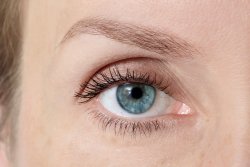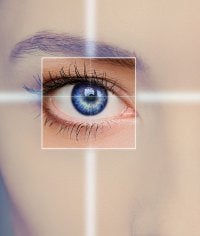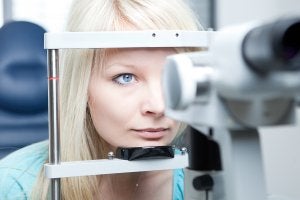-
How Cataracts Affect Your Vision
A cataract is a clouding of the lens that can cause blurry vision. This condition is commonly related to age, but it can happen earlier in life. If your eye doctor tells you that you have cataracts, you might need surgery in order to correct them.
In a healthy eye, the lens is clear and helps focus light so you can see properly. The lens is made of water and protein. With age, the proteins start to clump together to cause cataracts. Check out this video to learn more about the eye and cataracts.
If you do have cataracts, it is important to find a quality eye doctor in Chicago who can help you find the right treatment. With custom cataract surgery, your doctor can remove the cloudy lens and fit you with an intraocular lens that restores your vision.
-
Choosing Protective Sunglasses
You probably know that the sun’s rays can damage your skin and even lead to skin cancer, but did you know that exposure to UV rays can also be dangerous for your eyes? Watch this video to learn why you should choose protective sunglasses from a vision center near Chicago .
When you reach for your sunscreen to lather up before you go outside, don’t forget to grab a pair of sunglasses at the same time. Choose a pair that blocks at least 99% of UVA and UVB rays to give yourself the most protection. If you need new glasses, be sure to look for a sticker that rates the shades’ UV protection level before you buy them. Remember to look for a pair that you will enjoy wearing—protecting yourself from the harmful rays of the sun can be fashionable as well as practical! For additional sun protection, grab a wide-brimmed hat to shade your eyes, face, and neck so you can enjoy the outdoors safely.
-
An Overview of LASIK Eye Surgery
 If you wear glasses or contact lenses, LASIK eye surgery could fix your vision issues to free you from the burden of corrective lenses. Keep reading for an overview of the procedure and how it can help you break away from the restraints of a life with glasses or contacts.
If you wear glasses or contact lenses, LASIK eye surgery could fix your vision issues to free you from the burden of corrective lenses. Keep reading for an overview of the procedure and how it can help you break away from the restraints of a life with glasses or contacts.It Treats Refractive Errors
Most people who need corrective lenses have refractive issues that prevent light from reaching the cornea in the proper way. Refractive errors include nearsightedness, or myopia, farsightedness or hyperopia, presbyopia, and astigmatism. If you suffer from any of these issues, you should get a LASIK consultation near Chicago to see if this form of eye laser surgery can improve your vision.
It Uses a Laser to Reshape the Cornea
If you and your ophthalmologist decide that this is the right procedure for you, he or she will use a revolutionary laser to cut a small flap on the cornea. The ophthalmologist then sculpts the corneal tissue with a laser so light hits it the right way. Once this step is complete, the doctor can replace the flap. The LASIK eye surgery is a fast procedure that effectively corrects your refractive issues so you can have better vision.
It Has a Quick Recovery Time
Most patients heal quickly after their LASIK procedures. Your ophthalmologist will send you home with a prescription for eye drops that prevent your eyes from getting infected. You might experience hazy vision for a day or so, but you should enjoy improved vision within a few days after the procedure. After a follow-up visit with your ophthalmologist, you should schedule visits every six months to ensure your vision is doing well.
If you are interested in improving your refractive issues, you should schedule an appointment for an eye exam. After a thorough examination, the eye doctor can tell you if this surgery is the right treatment option for your vision issues or if you need to go with another option.
-
Benefits of Intraocular Lenses
 If you are one of the many people who rely on glasses or contact lenses in order to see clearly, you may have resigned yourself to the fact that you will always need these assistive aids. You may have even asked your eye doctor in Chicago about LASIK eye surgery, only to be told that you aren’t a good candidate for the procedure. If you are nearsighted, you may have another option. Intraocular contact lenses (ICL) work with the eye’s natural lens to improve vision without the hassle of glasses or external contact lenses. Visian ICL offers predictable and stable results, with an excellent quality of vision following the procedure. The implantation itself is relatively simple, as the lens is inserted through a very small incision. You won’t be able to see the lens once it’s implanted, and you won’t have to do anything to maintain it. Whether your myopia is mild or severe, ICL may be an option for you. Though removal shouldn’t be necessary, intraocular contact lenses are removable if the need should arise in the future.
If you are one of the many people who rely on glasses or contact lenses in order to see clearly, you may have resigned yourself to the fact that you will always need these assistive aids. You may have even asked your eye doctor in Chicago about LASIK eye surgery, only to be told that you aren’t a good candidate for the procedure. If you are nearsighted, you may have another option. Intraocular contact lenses (ICL) work with the eye’s natural lens to improve vision without the hassle of glasses or external contact lenses. Visian ICL offers predictable and stable results, with an excellent quality of vision following the procedure. The implantation itself is relatively simple, as the lens is inserted through a very small incision. You won’t be able to see the lens once it’s implanted, and you won’t have to do anything to maintain it. Whether your myopia is mild or severe, ICL may be an option for you. Though removal shouldn’t be necessary, intraocular contact lenses are removable if the need should arise in the future. -
Adult Risk Factors for Cataracts
 It’s easy to take your good vision for granted, but if something should go wrong, it could change your entire life. If you have not visited an eye doctor in Chicago recently, it’s time to make an appointment. Your eye doctor can spot potential vision problems before you even notice that something is wrong. Cataracts are a common condition that tend to affect older adults, and can lead to blurry, tinted vision. If your cataracts become severe, you may need to consult a custom cataract surgeon in order to restore your vision. Read on to learn about the risk factors for cataracts.
It’s easy to take your good vision for granted, but if something should go wrong, it could change your entire life. If you have not visited an eye doctor in Chicago recently, it’s time to make an appointment. Your eye doctor can spot potential vision problems before you even notice that something is wrong. Cataracts are a common condition that tend to affect older adults, and can lead to blurry, tinted vision. If your cataracts become severe, you may need to consult a custom cataract surgeon in order to restore your vision. Read on to learn about the risk factors for cataracts.Age
Aging is a part of life, but it can bring changes in your health that you may not be prepared for. Cataracts tend to affect people over the age of 60, though there are people who develop cataracts during middle age. Approximately half of adults over the age of 75 have cataracts and may need eye surgery to correct them. Normal proteins inside your eye’s lens can clump together as time goes on, which is what creates the cloudy effect in your vision.
Demographics
In general, women tend to have a higher risk of developing cataracts than men. Like many medical conditions, cataracts can be hereditary, so it’s a good idea to know your family history and find out if any of your relatives experienced them. Individuals of certain ethnicities may also be at a higher risk for cataracts, specifically African Americans and Hispanic Americans.
Medical Conditions
High blood sugar levels can contribute to the development of cataracts, which is one of the reasons why people with diabetes have a higher risk of developing them. In addition, individuals with diabetes are more likely to develop cataracts when they are younger than those without the disease. People with autoimmune diseases such as rheumatoid arthritis, lupus, and multiple sclerosis may also be at a higher risk of developing cataracts because of steroid medications they may need to take frequently. Be sure to tell your eye doctor about your complete medical history during your next eye exam.
